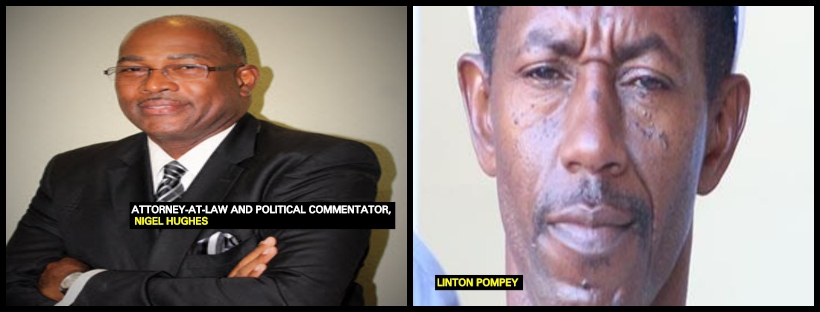When it comes to the dispensation of justice, Judges are faced with the arduous task of analyzing all the evidence before the court and handing down a fair sentence. But without proper guidelines, sentencing on sexual offenses which is a particularly delicate issue can be a recipe for inconsistencies in sentencing, with some going beyond the life expectancy of the accused. In many instances, the reasons underpinning the sentences are rarely fleshed out for the public to understand.
While the foregoing has been the norm in Guyana’s courtrooms, it is expected to take a radical twist following a landmark case that was recently addressed by a Full Bench of the Caribbean Court of Justice (CCJ).
The matter was one that involved Linton Pompey who was charged on May 29, 2013, under the provisions of the Sexual Offences Act. He was later convicted for three sexual offences perpetrated against a child. He appealed to the CCJ against the sentences imposed on him. The trial judge had ordered him to serve prison sentences of five, 15 , and 17 years respectively , and that the sentences run consecutively. But when the matter was considered by all seven judges of the CCJ, they unanimously agreed that the cumulative 37-year sentence given to Pompey was excessive. The Court felt that in handing down consecutive sentences, the totality principle must be considered. That principle addresses the cumulative impact of the sentences if they are to run consecutively.
The Court also noted that the practice of passing sentences immediately after a verdict comes in should generally be avoided, especially in cases where there is a likelihood that a lengthy prison term may be imposed. In such cases, the CCJ said that the judge should hold a separate sentencing hearing at which mitigating and aggravating factors, including mental health or psychological assessments, can better be advanced and considered. Further to this, the CCJ said that the public must be given the reasons for the sentence imposed.
Taking the foregoing into consideration, Pompey’s lawyer, Mr. Nigel Hughes, told the Guyana Standard during an exclusive interview that the CCJ with this ruling has essentially taken Guyana’s sentencing policy into the 21st Century.
Hughes said, “I think this is a seismic change in Guyana. Before you sentence someone to death or you sentence someone to spend a long time in prison in the Caribbean, you would have a mental health or a psychological assessment done so this is a pretty major development. I also believe that looking at the totality principle when doing consecutive sentencing is significant because consideration has to be given to the overall impact. This really is significant for Guyana because for a long time we have had sentencing handed down in varying degrees depending on which judge you go before.”
On this note, Hughes said that inconsistency in sentencing is something that has plagued Guyana’s courts for some time hence he is pleased with the seismic change that is about to unfold.
“Consistency will be an outcome as there are clear principles that have to be applied and one is that they have to have a full sentencing hearing, they can’t impose the sentencing immediately after the conviction for amongst the things to consider first is the mental health aspect so this is really going to revolutionize the sentencing on sexual offences,” the seasoned lawyer stated. Hughes also expressed his satisfaction with the fact that Judges will have to be way more transparent regarding the reasoning behind the sentences handed down.
While this does strike at the heart of good sentencing policy, it does create some room for worry or concern on the part of agencies such as the Child Protection Agency (CPA). The CPA rescues and represents the interests of abused boys and girls and in their fight for justice; they have relied over the years on the heavy hand of the courts to help keep predators at bay. That expectation can be no more as the CCJ has finally put a spoke in the wheel of excessive sentencing on these matters.











